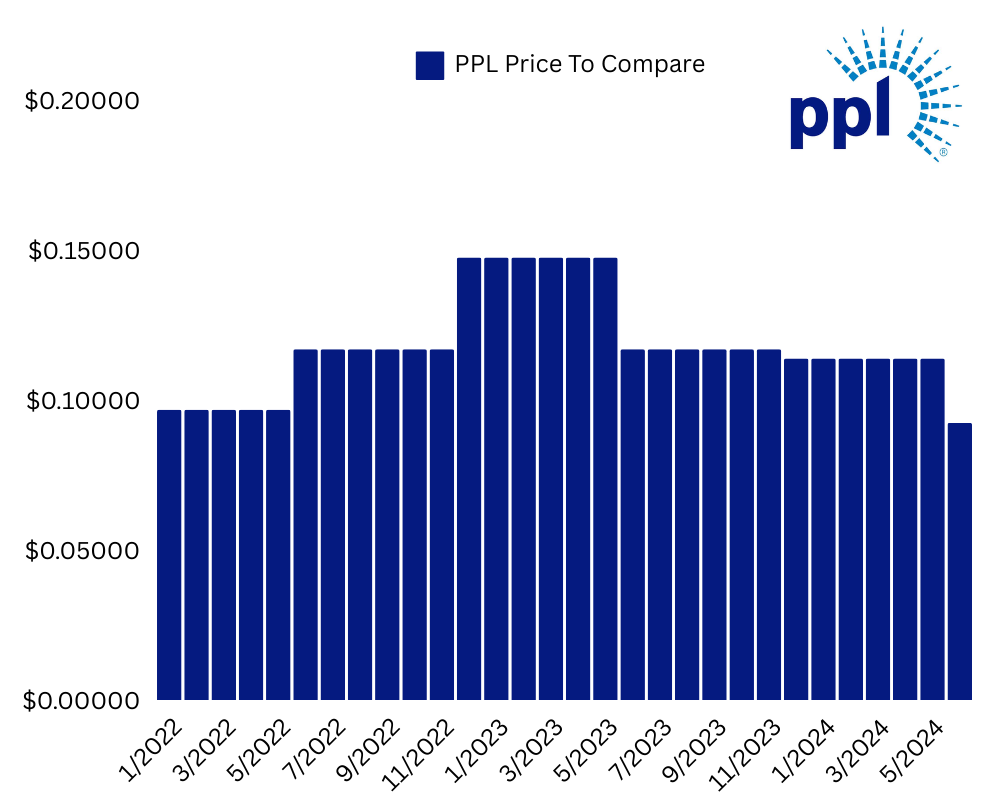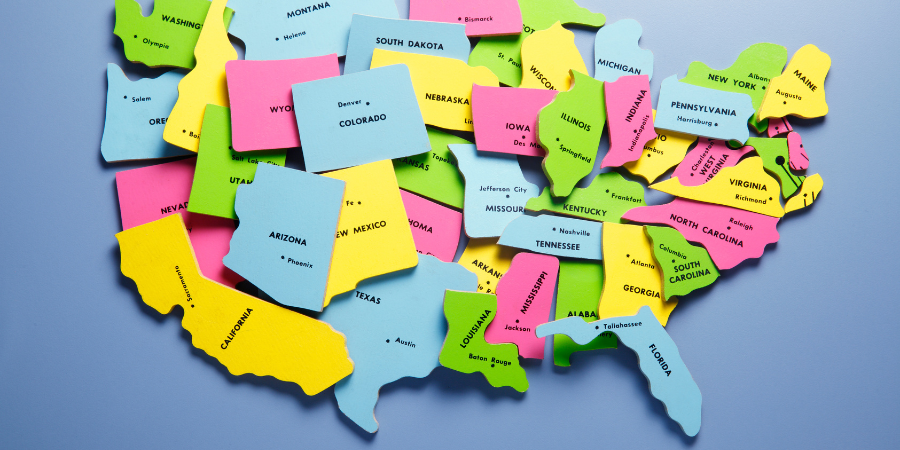The history of energy deregulation in the U.S. is complex and full of energy regulatory policies. While there are federal bodies such as F.E.R.C. that oversee many aspects of the energy market, many regulatory decisions are made at the state level. This makes navigating deregulated energy markets quite complex for multi-state operators. In this article, we’ll dive into the intricacies of energy regulation and point out the key differences at the regional level.
Regulated vs. Deregulated Markets: A State-By-State Comparison
Today, there are twenty four U.S. states that have enacted some sort of open market access for energy. This policy allows certain customers in these states to purchase electricity or natural gas from a third-party provider, other than their local utility. Not all deregulated energy states are created equal. Some states allow full access for all customer types, while others limit market access to certain usage or customer energy rate tariff requirements. The remaining twenty six states are considered regulated markets, where local utility companies have monopoly control. In regulated states, consumers are forced to purchase energy from the utility.
The list below outlines each deregulated state and details the specific rules garnishing energy deregulation policy in that state.
| State | Electricity Regulation | Natural Gas Regulation |
|---|---|---|
| CA | Limited | Full |
| CT | Full | Full |
| DE | Full | Full |
| FL | Regulated | Full |
| GA | Regulated | Full |
| IL | Full | Full |
| IN | Regulated | Limited |
| KY | Regulated | Limited |
| ME | Full | Full |
| MD | Full | Full |
| MA | Full | Full |
| MI | Limited | Limited |
| NE | Regulated | Limited |
| NV | Regulated | Full |
| NH | Full | Full |
| NJ | Full | Full |
| NM | Regulated | Full |
| NY | Full | Full |
| OH | Full | Full |
| PA | Full | Full |
| RI | Full | Regulated |
| VA | Limited | Limited |
| DC | Full | Regulated |
Multi-State Operators And Energy Challenges
Managing utilities across multiple states can be complicated for national organizations. With different market access rules varying by state, it can be a full time job to keep up with local energy policy for each of your locations. Here are some of the top challenges facing multi-state companies related to energy deregulation.
-
Limited Knowledge About Markets
Some companies with headquarters in regulated states might not even be aware of energy deregulation opportunities for their other locations. In fact, it is quite common for these types of companies to not choose an energy supplier for their businesses located in deregulated states, leaving them to purchase energy from the local utility companies at a default price. These organizations could be potentially missing out on significant energy savings by not participating in the deregulated market.
-
Challenges Managing Contract Data
If you have many locations across the country and you are shopping for energy in deregulated states, then it can be difficult to manage all of your energy supply contracts. Unless you time each contract to expire at the same time, you could have multiple contracts with different end dates, making it difficult to avoid missing an energy contract renewal. Having a system in place to manage contract data, or hiring an energy broker to do so on your behalf, are great ways to overcome this problem.
-
Beating The Price To Compare
If you’re participating in energy deregulation and have managed contract challenges, your final task is to avoid overpaying. In most deregulated markets, there’s a utility default rate, also known as the price to compare. The only way to save money is to purchase energy from a supplier at a rate lower than this benchmark. However, the price to compare can fluctuate. For example, here’s PPL Electric’s price to compare over the past few years in Allentown, PA:

These rate changes reflect the volatility of the energy markets. Understanding these markets is crucial to securing a rate lower than the utility default rate. Retail energy supplier contracts are often long-term, spanning many years. If you lock in at the wrong time, you could end up paying more than the local utility rate. This challenge is amplified for multi-state business operators tracking multiple markets and utilities across the country.
Need Help Navigating Energy Deregulation On A National Basis?
Whether you are managing a business with locations across the country, or you need help understanding local deregulated utility markets, our team can help. We have decades of experience working regularly in all deregulated energy markets across the U.S. Not only are we aware of local energy policies and regulations, but we also have a good grasp over local energy prices and how they compare to energy supplier offers. Contact us today to schedule a free consultation so we can help you create an energy strategy for your business that pays.



